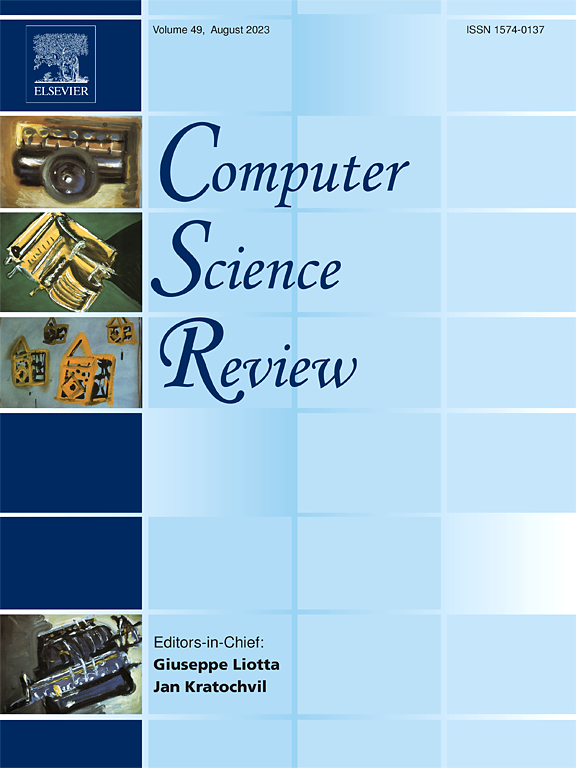Artificial intelligence in COVID-19 research: A comprehensive survey of innovations, challenges, and future directions
IF 12.7
1区 计算机科学
Q1 COMPUTER SCIENCE, INFORMATION SYSTEMS
引用次数: 0
Abstract
The COVID-19 pandemic has accelerated the use of AI and ML in healthcare, improving diagnosis, treatment, and resource allocation. This survey examines the AI applications in disease detection, differential diagnosis, and post-COVID complication analysis. Our findings show that 53% of the reviewed studies focus on COVID-19 detection, while only 14% address post-COVID complications. This reveals a gap in long-term patient monitoring. Convolutional Neural Networks (CNNs) are the most frequently used models, appearing in 23% of reviewed studies as standalone architectures and even more often in hybrid models. Meanwhile, transformers and multimodal models remain underutilized. Each appears in only 4% of the studies, limiting the integration of diverse data sources, such as imaging, audio, and lab results. Federated learning, a privacy-preserving AI approach, appears in 9% of studies. However, it is still less common than centralized models. This restricts secure and collaborative AI development. Despite these progress, challenges such as data bias, limited model generalization, and ethical concerns persist. Advanced methods including transformer models and knowledge distillation offer potential solutions for improving computational efficiency. To strengthen AI-driven healthcare, this survey highlights three key needs: (1) broader adoption of multimodal AI, (2) development of computationally efficient and interpretable AI models, and (3) increased use of federated learning to support privacy-preserving AI training. By synthesizing insights from various studies, this paper provides a comprehensive evaluation of AI innovations in COVID-19 research and outlines key directions for future advancements in ethical and scalable AI-driven healthcare.
2019冠状病毒病研究中的人工智能:创新、挑战和未来方向的综合调查
COVID-19大流行加速了人工智能和机器学习在医疗保健领域的应用,改善了诊断、治疗和资源分配。本调查探讨了人工智能在疾病检测、鉴别诊断和covid后并发症分析方面的应用。我们的研究结果表明,所审查的研究中有53%关注COVID-19检测,而只有14%关注covid后并发症。这表明在长期患者监测方面存在差距。卷积神经网络(cnn)是最常用的模型,在23%的综述研究中作为独立架构出现,甚至更多地出现在混合模型中。与此同时,变压器和多式联运模式仍未得到充分利用。每种方法只出现在4%的研究中,限制了不同数据源(如图像、音频和实验室结果)的整合。联邦学习,一种保护隐私的人工智能方法,出现在9%的研究中。然而,它仍然不如集中式模型常见。这限制了安全和协作的人工智能开发。尽管取得了这些进展,但数据偏差、有限的模型泛化和伦理问题等挑战仍然存在。变压器模型和知识精馏等先进方法为提高计算效率提供了潜在的解决方案。为了加强人工智能驱动的医疗保健,本调查强调了三个关键需求:(1)更广泛地采用多模式人工智能,(2)开发计算效率高且可解释的人工智能模型,以及(3)更多地使用联邦学习来支持保护隐私的人工智能培训。通过综合各种研究的见解,本文对COVID-19研究中的人工智能创新进行了全面评估,并概述了未来在道德和可扩展的人工智能驱动的医疗保健方面取得进展的关键方向。
本文章由计算机程序翻译,如有差异,请以英文原文为准。
求助全文
约1分钟内获得全文
求助全文
来源期刊

Computer Science Review
Computer Science-General Computer Science
CiteScore
32.70
自引率
0.00%
发文量
26
审稿时长
51 days
期刊介绍:
Computer Science Review, a publication dedicated to research surveys and expository overviews of open problems in computer science, targets a broad audience within the field seeking comprehensive insights into the latest developments. The journal welcomes articles from various fields as long as their content impacts the advancement of computer science. In particular, articles that review the application of well-known Computer Science methods to other areas are in scope only if these articles advance the fundamental understanding of those methods.
 求助内容:
求助内容: 应助结果提醒方式:
应助结果提醒方式:


